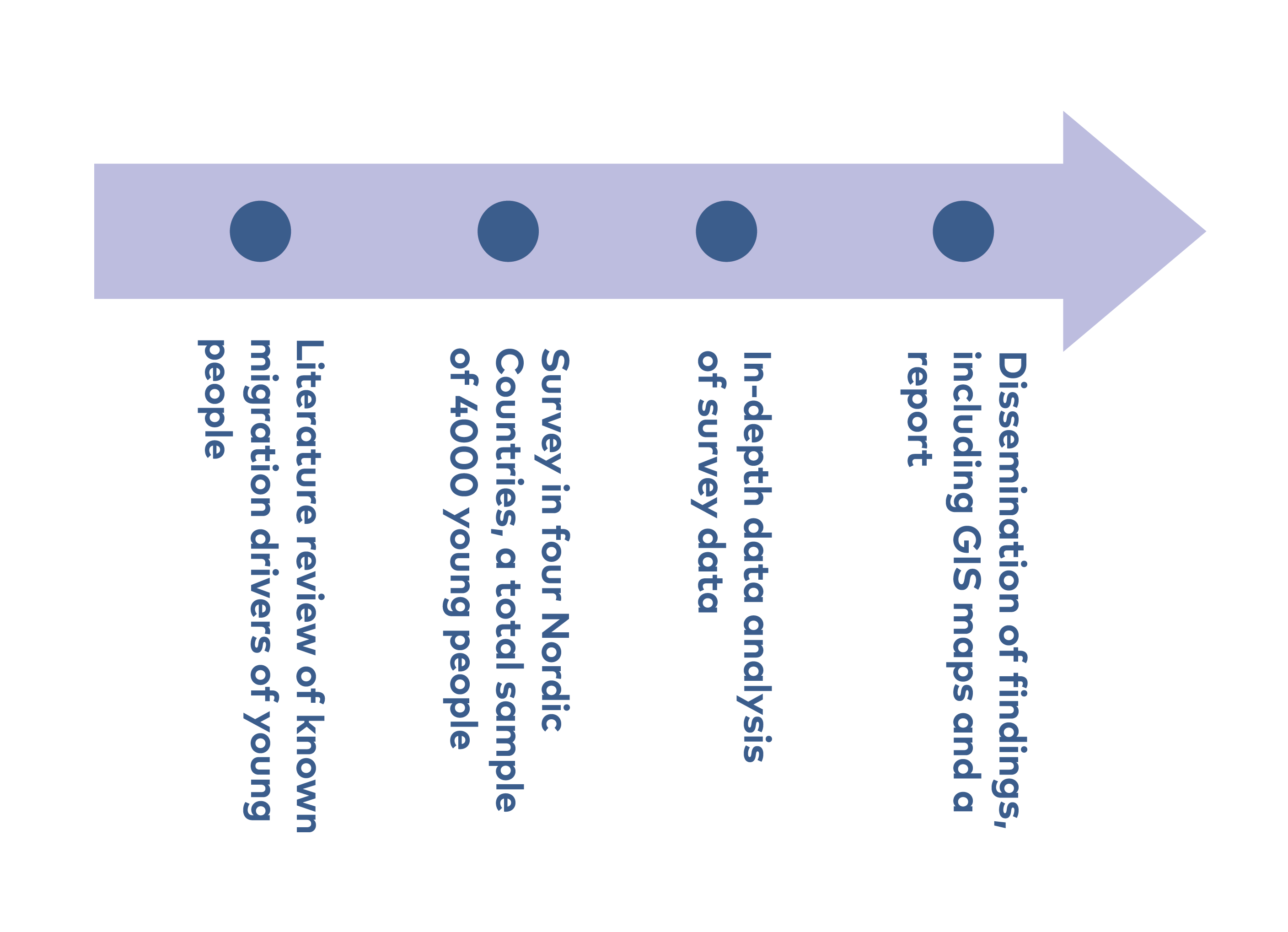Photo: Charles Forerunner / Unsplash.com
Research outline: Early Career Mobility in the Nordic Region
The project Early Career Mobility in the Nordic Region is based on quantitative methodology, collecting survey data from the Nordic region on migration drivers and aspirations of young adults. The literature review summarised in this paper is the foundation for the survey design, which will be carried out in Denmark, Sweden, Norway and Finland in September and October 2023
Iceland may be included in the sample but at the time of writing it is still undecided, a decision will be taken in mid-October 2023.

- Conceptual Development and literature review: A literature review of known migration drivers and associated factors with young people´s labour mobility.
- Data collection: Based on the literature review findings, a survey will be designed on the migration intentions of young people in the Nordics. The survey will be distributed to a distribution, and educational background. The data gathered from the survey will provide a base-study of migration aspirations of 25-39-year-olds in the Nordic region to understand current and near-future internal migration volumes and drivers. The study will focus on remote and/or rural municipalities and consider regional characteristics, such as dominating industries.
- In-depth Case Studies: The case studies will target the second research question on migration drivers through statistical analysis of the survey data. The project will develop a comparative approach, based on the key factors identified in the statistical analysis. The survey data will be explored in detail to understand the socio-economic characteristics of migrants and determinants of internal migration of the target population, including nuances such as skills match and dominating industries, the influences of emerging remote work opportunities, lifestyle choices, gender, and family planning.
- Dissemination and presentation of results.
Migration aspirationsTraditionally, migration studies have focused on the analysis of retrospective data on in- and out-migration intensities and flows. The retrospective data on migration is limited to the prospective migrants who actually end up moving, and naturally excludes all prospective migrants who wish to move, but for whichever reason end up not doing so. Thus, exploring migration aspirations or migration wishes offers a more inclusive approach to analysing actual mobility drivers and factors associated with the wish to move. Regardless of whether the prospective migrant moves or stays, the wish to move can influence his or her livelihood decisions and well-being within the community. Examples include investing in property, acquiring skills for the local employment market and the degree of participation in the community (see e.g., Carling & Mjelva, 2021). Data on the wish to move can therefore be of great value to policymakers and other stakeholders such as local industries and employment offices. Analysing data on migration aspirations offers valuable insight into factors associated with the wish to move as well as forecasting migration flows and intensities. |
The research project will contribute to the Nordic Vision 2030 by identifying current internal migration trends; a necessary knowledge base for the integration of the Nordic region. The results will provide regional policymakers and planners with recommendations based on an analysis of mobility drivers and socio-economic profiles of migrants of the target population. The findings will contribute to ongoing and forthcoming research projects carried out by other Thematic groups.